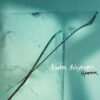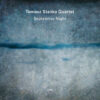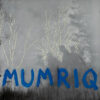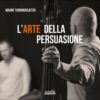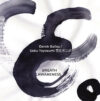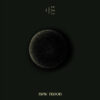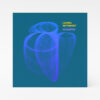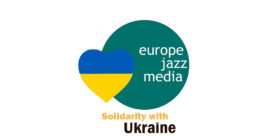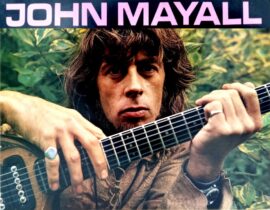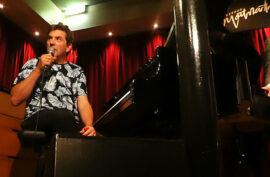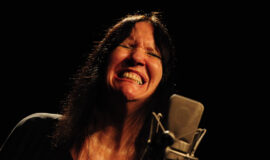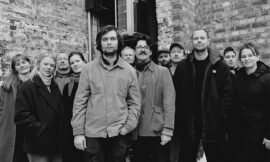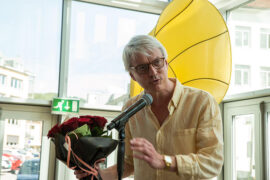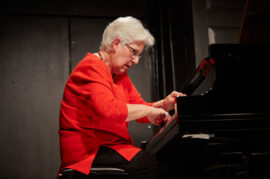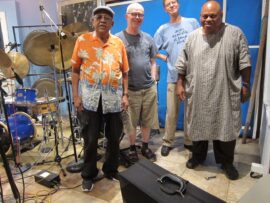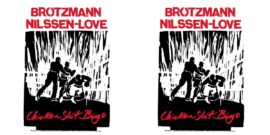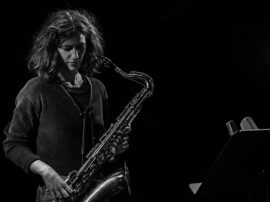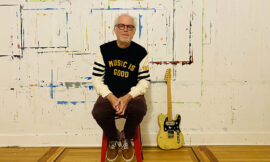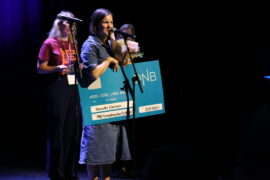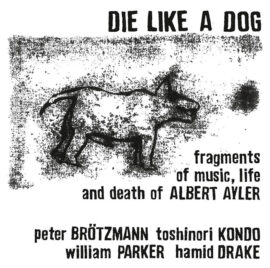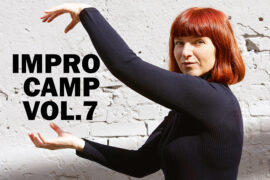
Live, historical performance of a German-British free-improvising quartet led by then young sax player Stefan Keune, only 28 years old during the time of the recording and playing the sopranino and tenor saxes, captured at Museum Bochum on October 1993 during the Ruhr Jazz Festival. Recently, Keune found the tape of this performance at his basement and after listeing to it several times knew that he would do justice bye realeseing it. He is joined by fellow German double bass player Hans Schneider, who played then in Keune’s trio (with British drummer Paul Lytton) and continued fifteen years later to play in another trio of Keune. Keune met at this performance for the first time British guitarist John Rusell and since then continues to collaborate with him. («Two Pieces, 1999; Excerpts & Offering», ACTA, 2001; «Frequency of Use», Nur/Nicht/Nur, 2003). German master drummer Paul Lovens rounds this quartet, and he also became a frequent collaborator of Keune («Live 2013». FMR, 2016).
The ironic title of this recording suggests something about the aesthetics of this, spntaneously improvised meeting. It is not ‘horrible’ as the brutal and thorny school of free-improvisation of Peter Brötzmann (who, by the way, lives not far away from Bochum or from Keune’s hometown, but still it owes much to the British school of free-improvisation, mainly of Brötzmann’s comrade Evan Parker and of the work of John Butcher. And as in some of the best European documents of free-imrovisation, you can find in this performance find ideas and elements from the classical training of Keune,, as well as from chamber and contemporary music.
«Nothing Particularly Horrible» offers four pieces spreading over 45 minutes. This quartet creates a sense of big, open sense on the opening, 23-minutes of «Stretchers», with a magnificient work of Lovens on the skins of his drums and surfaces of his cymbals, keeping the music flowing freely with no pulse. Keune and Russell charge this piece with elemnts of tension, each in its way but with a full focus on the contributions of the other musicians. «Cuism» highlights the close connection of Keune with Schneider, dancing closely around each other. Keune’s bird calls on «Drei» call the quartet to act in full force, spreading all over the space, again, with great work of Lovemns, who manages to anticipate all gestures a milisecond before they actually happen and challenge all with his pulse-free attacks. Lovens introduces the last and sparse «With a big stick» that calls for nuanced, modest gestures rooted in deep listening.
Eyal Hareuveni
Stefan Keune (sopranino, ts); John Russell (g), Hans Schneider (b), Paul Lovens (dr, cymbals, gongs, musical saw)

